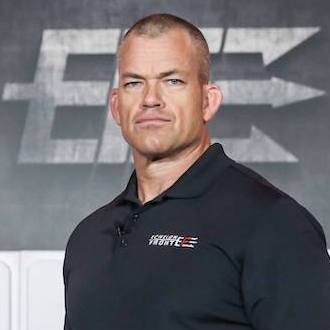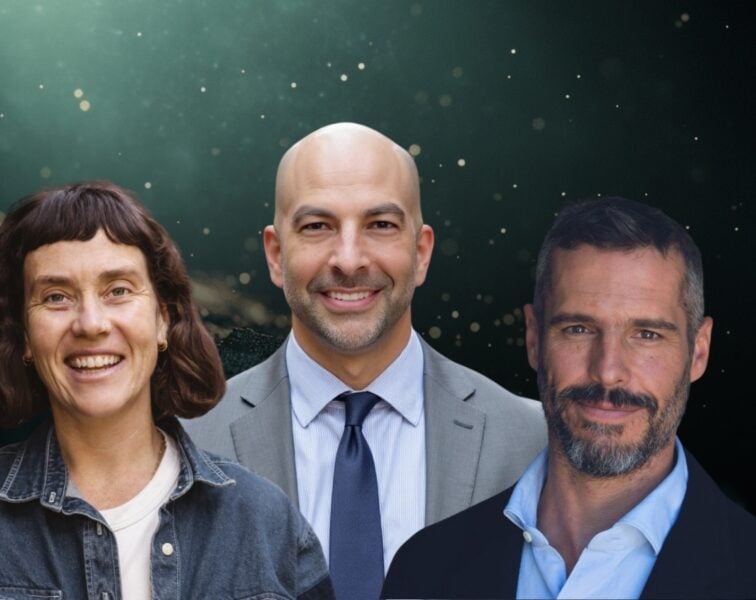In part 1 of this 2 part series, Jocko Willink, retired Navy SEAL, discusses some of his most important lessons learned from his time commanding some of the world’s most expert special forces operators including the importance of understanding the objective and strategy (and then tactics) of a mission, why humility is the greatest trait a leader can have (and certain times when it’s not), as well as the necessity of having proper protocols in place to deal with whatever comes your way. We also talk about how Jocko prioritizes his military and family obligations with his love for jiu-jitsu, as well as how to decipher what really matters in life. Finally, we go through the US history with respect to various wars from World War I, all the way forward, and much much more.
Subscribe on: APPLE PODCASTS | RSS | GOOGLE | OVERCAST | STITCHER
We discuss:
- Objective, strategy, and tactics [6:00];
- Training compared to actual combat [20:30];
- The importance of humility in leadership, business, and life [33:00];
- The dichotomy of human traits: Can you be too humble? [49:00];
- Why many leaders lack humility [52:30];
- Why Jocko wanted to be a Navy SEAL [55:00];
- Jocko’s attitude toward death, and dealing with the death of a soldier [58:45];
- The vital importance of protocols [1:03:45];
- Protocol for losing a child (or anyone close to you) [1:15:00];
- Protocol for getting dumped, and some relationship advice [1:18:00];
- How to differentiate between things that matter and things that don’t [1:24:30];
- Jocko shares his experience during BUD/S [1:35:45];
- How Jocko prioritizes his family and SEALs obligations: Would Jocko come out of retirement and go back to war? [1:48:30];
- America’s lost sense of connectedness and purpose since WWII [1:59:00];
- How warfare has evolved over the decades since WWI [2:05:40];
- Obeying orders and the obligation to dissent [2:09:00];
- WWI and WWII, the beginnings of “decentralized command” [2:15:00];
- The American warrior mentality, and the impact of freedom on a society [2:20:45];
- What impact can an individual president really have? [2:25:00];
- The Korean war [2:29:15];
- Lessons learned from Vietnam [2:31:10];
- First Gulf War, Iraq War, and The War in Afghanistan [2:35:45]; and
- More.
Get Peter’s expertise in your inbox 100% free.
Sign up to receive An Introductory Guide to Longevity by Peter Attia, weekly longevity-focused articles, and new podcast announcements.
Objective, strategy, and tactics [6:00]
- Peter credits Denis Calabrese for his current way of differentiating between objective, strategy and tactics
- Denis’s framework for solving hard problems:
- First, defining your objective
- Must be really clear
- Most people actually miss that step
- Next, you must put a strategy in place
- Your strategy is the framework, a “scaffolding” upon which you will hang tactics
- *Too many people go from objective straight to tactics*
- Lastly, develop your tactics
- First, defining your objective
- In summary: Objective ⇒ Strategy ⇒ Tactics
How Jocko developed a similar technique
- Realized as a leader of troops that if the front-line troops didn’t understand things at a little bit higher level than the tactical level, then they couldn’t make decision on their own
- This inhibits the ability to operate with decentralized command
- A mistake that you make on a tactical level, can have a strategic negative impact
⇒ Classic example: Abu Ghraib prison scandal
- A small group of US soldiers mistreated some prisoners of war and took photos
- This was then used as propaganda by the enemy to rile up their support and paint all American soldiers as the evil enemy
- The strategy was actually the opposite… to show US soldiers as the good guys to the local communities
- So this is a massive strategic negative impact, because these front-line soldiers didn’t fully understand the strategic situation that they were in
Decentralized command
- With “centralized command”, the front-line soldiers typically just know the tactics and are not well informed to the strategy
- If they get separated from centralized command, they are then totally “lost” as to what to do
- And you don’t even have to get separated… as an extreme example, a sniper will have to make a decision in a split second whether to kill someone without the time or ability to ask his boss… without the understanding of the strategy, he cannot make the right decision
In health and nutrition
- People get so focused on the tactics (i.e. should I be keto? Vegan? Paleo?)
- “I try to discourage that kind of discussion because it’s very tactical. And if you ask tactical questions, or questions that demand tactical answers, you’ll never get the bigger picture.”
- Nutritional information will change over time ⇒ “So instead of pegging yourself to, ‘What’s the right thing to eat today?’, peg yourself to the principle of nutritional biochemistry. And then you can sort of evolve over time.”
Why people always focus on tactics?
- “It makes life easy. It takes the decision out of their hands.” say Jocko
- Jocko says it also removes the blame if the decision is wrong
- But ignoring strategy and focusing on tactics doesn’t work in the long run because you can’t prepare for every single possible situation
⇒ Example,
- in Iraq, he had a situation where 4 suspicious guys pulled over and opened their trunk
- The first thought is that they were about to pull out mortar and launch them as US soldiers
- But turns out they were just jacking up their car to change a flat tire
“So, those are situations that you can’t predict. And if people don’t understand what the strategic vision is, then they can’t make decisions out there.”
Training compared to actual combat [20:30]
“Everybody has a plan until they get punched in the mouth.” — Mike Tyson
SEAL training
{end of show notes preview}
Would you like access to extensive show notes and references for this podcast (and more)?
Check out this post to see an example of what the substantial show notes look like. Become a member today to get access.

Jocko Willink
Jocko Willink is a retired U.S. Navy SEAL officer, co-author of the #1 New York Times bestseller Extreme Ownership: How U.S. Navy SEALs Lead and Win, host of the top-rated Jocko Podcast, and co-founder of Echelon Front, where he serves as Chief Executive Officer, leadership instructor, speaker and strategic advisor. Jocko spent 20 years in the SEAL Teams, starting as an enlisted SEAL and rising through the ranks to become a SEAL officer. As commander of SEAL Team Three’s Task Unit Bruiser during the battle of Ramadi, he orchestrated SEAL operations that helped the “Ready First” Brigade of the U.S. Army’s First Armored Division bring stability to the violent, war-torn city. Task Unit Bruiser became the most highly decorated Special Operations Unit of the Iraq War.
Jocko returned from Iraq to serve as Officer-in-Charge of training for all West Coast SEAL Teams. There, he spearheaded the development of leadership training and personally instructed and mentored the next generation of SEAL leaders who have continued to perform with great success on the battlefield. Jocko is the recipient of the Silver Star, the Bronze Star, and numerous other personal and unit awards.
Upon retiring from the Navy, Jocko co-founded Echelon Front, a premier leadership consulting company, where he teaches the leadership principles he learned on the battlefield to help others lead and win. Jocko also authored the Discipline Equals Freedom Field Manual, a New York Times Bestseller, and the best selling children’s books: The Way of the Warrior Kid, and The Way of the Warrior Kid: Marc’s Mission.
[echelonfront.com]



